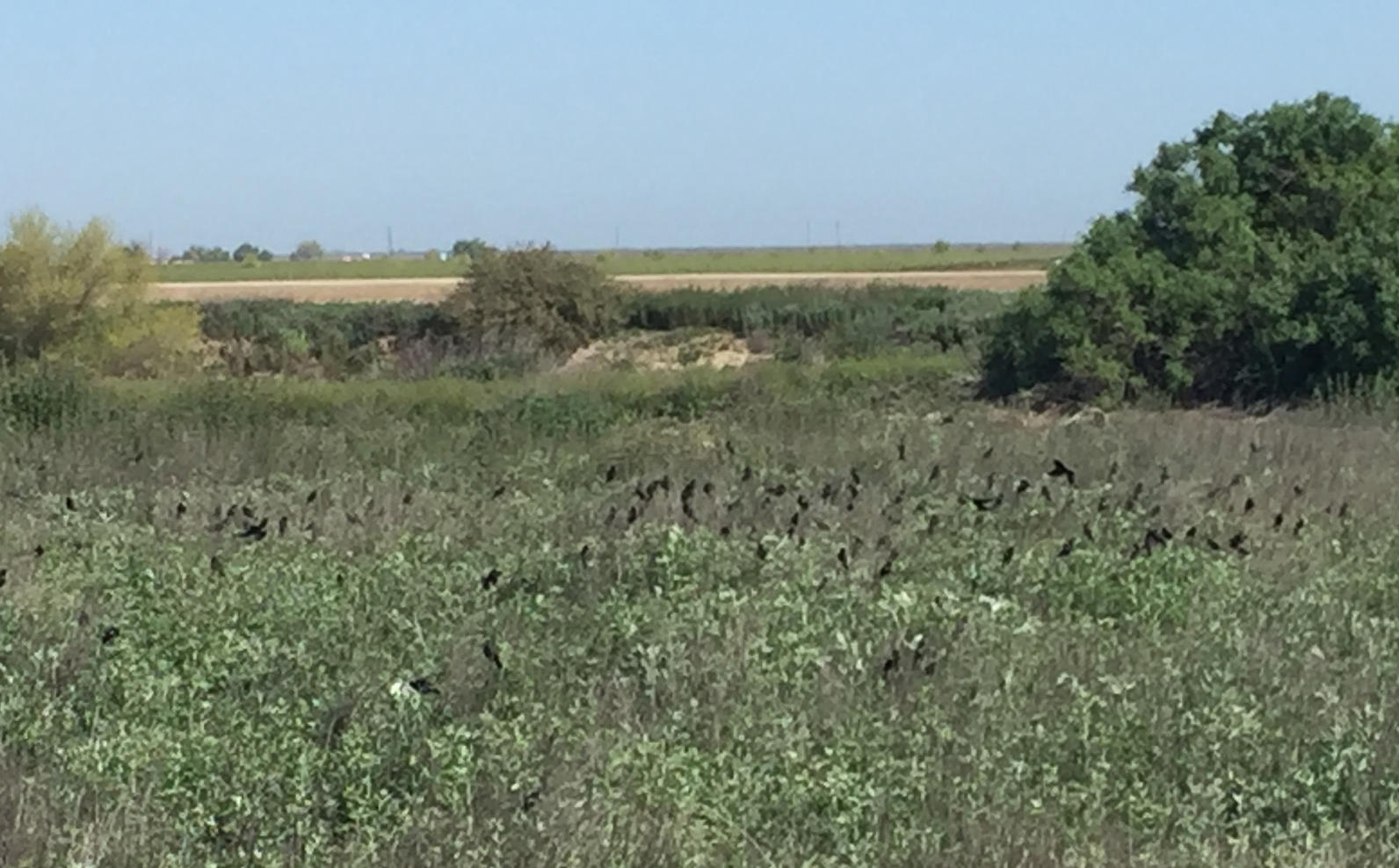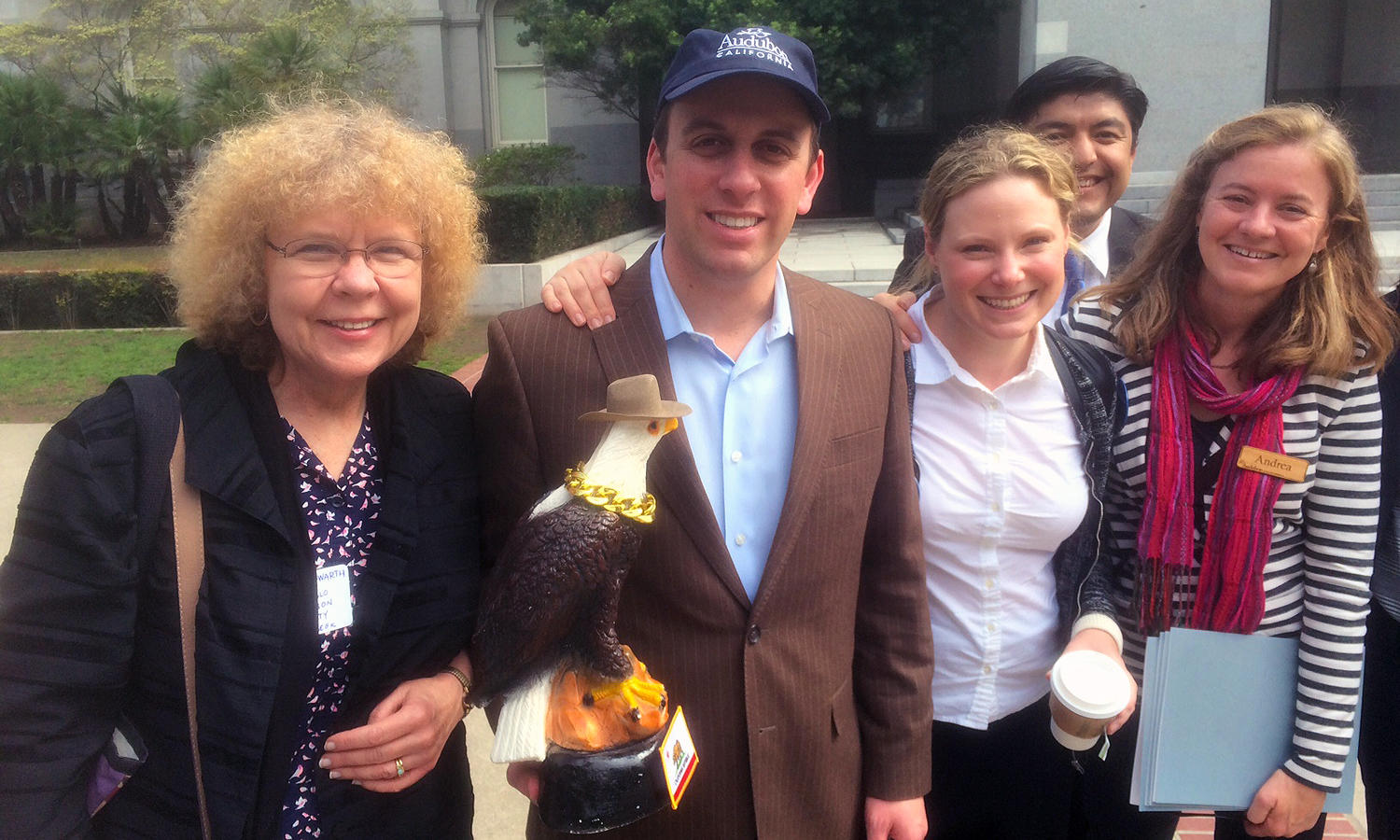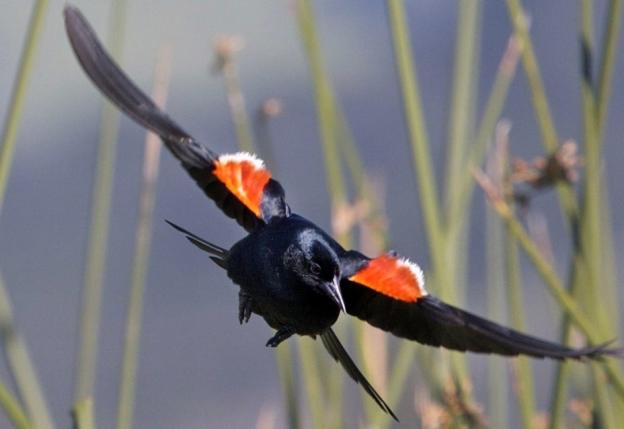Latest News and Updates from Audubon in California
California Condor. Photo: Scott Frier/USFWS
Pixar has announced a new short animated film and it's about a shorebird. The Emeryville-based company was across the street from our old headquarters but according to an Entertainment Weekly article, it was inspired by the creator's runs along San Francisco Bay:
The inspiration for the six-minute short — about a hungry baby sandpiper learning to overcome hydrophobia — came from less than a mile away from Pixar Studios in Emeryville, California, where veteran Pixar animator and Piper director Alan Barillaro would run alongside the shore and notice birds by the thousands fleeing from the water but returning between waves to eat.
“Seeing the way these sandpipers react to waves and run, I always felt, ‘Gosh, that’s a film, that’s a character,’” says Barillaro, who began toying with animation software as a personal challenge to design a non-speaking character who was afraid of the water yet had to venture into it to eat. “It’s always fun to show a world we’re familiar with but from a different perspective. We’ve all been to the beach, but have we ever viewed water from just an inch off the sand? That could be very fearful from a bird’s perspective.”
California Governor Jerry Brown will join Oregon Governor Kate Brown and a group of other state officials at the Klamath river tomorrow to make a “major announcement about water supply reliability, environmental restoration and hydroelectric dams.” Here some of the hazy detail from a North Coast Journal article:
It’s unclear exactly what the announcement will be, but it’s expected the officials will present a ratification of a new deal to revive what’s been dubbed the largest dam removal project in the nation’s history. The press release says only that the officials will be making an announcement that will "further progress toward the largest river restoration project in U.S. history."
The deal, struck in principle back in February, would see the states of Oregon and California form a nonprofit corporation to take over ownership of the dams from PacifiCorp, the energy company that currently owns the dams. The nonprofit would then rely on existing federal authority to decommission and remove the dams with funds already generated from PacifiCorp ratepayers and a California water bond.
Read the entire article here.

We just received word from the field from Samantha Arthur that our staff has identified about 35,000 to 45,000 Tricolored Blackbird nesting on dairy farms in Kern, Tulare, and Merced counties. Those numbers are likely to change a little as the nesting season continues, but it's important to understand that each and every one of these nests is in danger of being destroyed unless we're able to strike agreements with farmers to delay harvest until the chicks have fledged. Thankfully, we're better prepared for this possibility than ever before. We're working closely with the dairy industry and government agencies to identify nesting colonies and get them protected.
This work is difficult and is more important now than ever. Tricolored Blackbirds are in a steep decline, so every colony is vital to the survival of the species. The California Fish & Game Commission recently made it a candidate for listing under the state Endangered Species Act. Learn more about the species here.
Please consider making a donation to our Tricolored Blackbird campaign. Every dollar of your contribution goes into preserving a future for this important California bird.

Audubon Magazine has a great profile of Rosalie Howarth, a member of Mount Diablo Audubon, who has been active advocating for legislation addressing the impact of climate change on birds. Howarth is also a popular radio DJ in the Bay Area for KFOG-FM. It's a great piece about the power of persistence -- and Howarth also shares her tips for making the types of connections with lawmakers that make a difference.

Just got a message from Samantha Arthurs, who runs Audubon California's Tricolored Blackbird conservation efforts, that she and others have identified "35,000 to 45,000 Tricolors nesting on dairies right now in Kern, Tulare, and Merced counties." These nests are at risk of destruction if we're not able to work with our partners in the dairy industry and federal agencies to protect them. Learn more about our program and, if you can, make a donation to our Tricolored Blackbird campaign. This is a file photo -- we hope to have photos from the field today.
Our newsletter is fun way to get our latest stories and important conservation updates from across the state.
Help secure the future for birds at risk from climate change, habitat loss and other threats. Your support will power our science, education, advocacy and on-the-ground conservation efforts.
Join the thousands of Californians that support the proposed Chuckwalla National Monument.